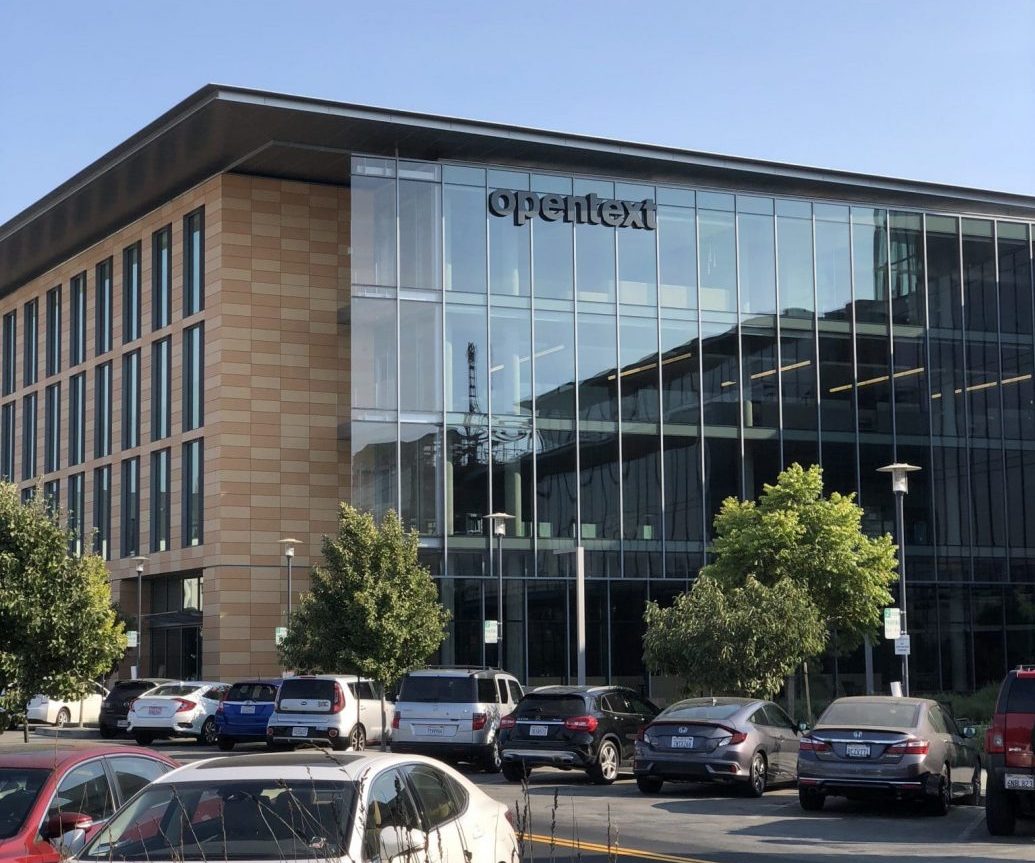
Canadian software consolidator OpenText (OpenText Stock Quote, Charts, News, Analysts, Financials TSX:OTEX) has been hammered in recent months, just like the rest of the tech sector. But investors looking for bright spots in the otherwise gloomy technology space should be thinking about OTEX for a number of reasons, says portfolio manager Teal Linde, who likes the company’s growth runway.
“OpenText is interesting because they’ve recently identified what’s called the Global 10,000, which is 10,000 of the largest enterprises around the world — they’re in touch with about 40 per cent of them and they’ve decided that their goal is to start increasing their contact with more of those companies,” said Linde, manager at Linde Equity Fund, who spoke on BNN Bloomberg on Monday.
Waterloo, Ontario-based OpenText is an enterprise-level information management solutions company with both on-premises and cloud-based offerings covering areas such as records and digital asset management, data integration, marketing optimization, communications, cybersecurity and analytics. The company grows organically and by acquisitions, showing revenue growth in the single digits in recent years. OTEX’s topline has gone from $2.87 billion in its fiscal 2019 (year end June 30) to $3.11 billion in 2020 to $3.39 billion in 2021, while earnings show a margin of under ten per cent, hitting net income of $310.7 million for 2021.
“They also have about 75,000 customers, and they figure that the penetration of their software they offer is about ten per cent into their existing customer base, so they want to increase that,” Linde said. “They’ve been talking about this for a while but the reason why it’s probably got more traction potential now is because their software offering is more broad.”
“And because of the advantages of cloud technology it’s easier to market and sell and get customers to take on your software with the cloud. And so I think that they are in a sweet position to do that,” he said.
Like many tech businesses, OpenText saw a lull over COVID as companies stalled on their digital transformation plans, but OTEX management sees a bright future from here on out.
“Information Management’s time has come, and OpenText is perfectly positioned to lead the market as we digitally empower many of the most innovative global organizations, in nearly every vertical and line of business,” said CEO and CTO Mark J. Barrenechea, in a Q4 and year-end 2021 press release last August. “OpenText Cloud Editions enables customers to accelerate growth and stay ahead of the competition by maximizing the value of their information through our cloud-based Information Management platform.”
But so far, the market is seemingly unimpressed with that proposed uptick in business for OpenText, with the stock down about 15 per cent over the past 12 months. Year-to-date, OTEX is down 20 per cent. With a market capitalization at $12.7 billion, OpenText also comes with a sizeable dividend, for a tech company, currently at a 2.4 per cent yield.
“They’re an acquisitor of other companies, but the valuation is attractive,” said Linde. “And I guess if we had to buy a growth-through-acquisition software company OpenText would be one that we would seriously consider.”
As for the overall downturn in the market, which has hit the technology sector especially hard this year and starting in November of last year, Linde doesn’t buy the correlation between rising interest rates and a depressed market. The notion is that higher rates dig into a company’s future value, especially in the case of more growth-oriented names such as those in tech.
But Linde argues that the current rising rate environment is historically not at odds with a strong market.
“If you go back to the late 1990s when the stock market was booming, the Federal Reserve rate was four and a half percent and the ten-year bond was five and a half percent, and those weren’t rates that had been jacked up to slow down the economy. Those were normal rates,” he said.
“And yet with the stock market back then, the valuation was higher, much higher than it is today. So, the idea that interest rates are going to go up and that means the stock market is destined to go down, I don’t think so,” he said.
“There’s a theory of called the Fed model which was founded to talk about when interest rates go up stocks go down and vice versa, but that Fed model has had a very poor track record over the years. And so, I don’t think it’s really worth relying on,” Linde said.
Earlier this month, OpenText reported its third quarter fiscal 2022 financials, showing record Q3 revenue of $882.3 per cent, up 5.9 per cent year-over-year and adjusted EBITDA down 4.3 per cent to $284.5 million. The company’s revenue included $401.9 million in Cloud Services and Subscriptions revenue, up 13.0 per cent year-over-year, and $332.5 million in Customer Support revenue, down 3.4 per cent.





 Share
Share Tweet
Tweet Share
Share




Comment